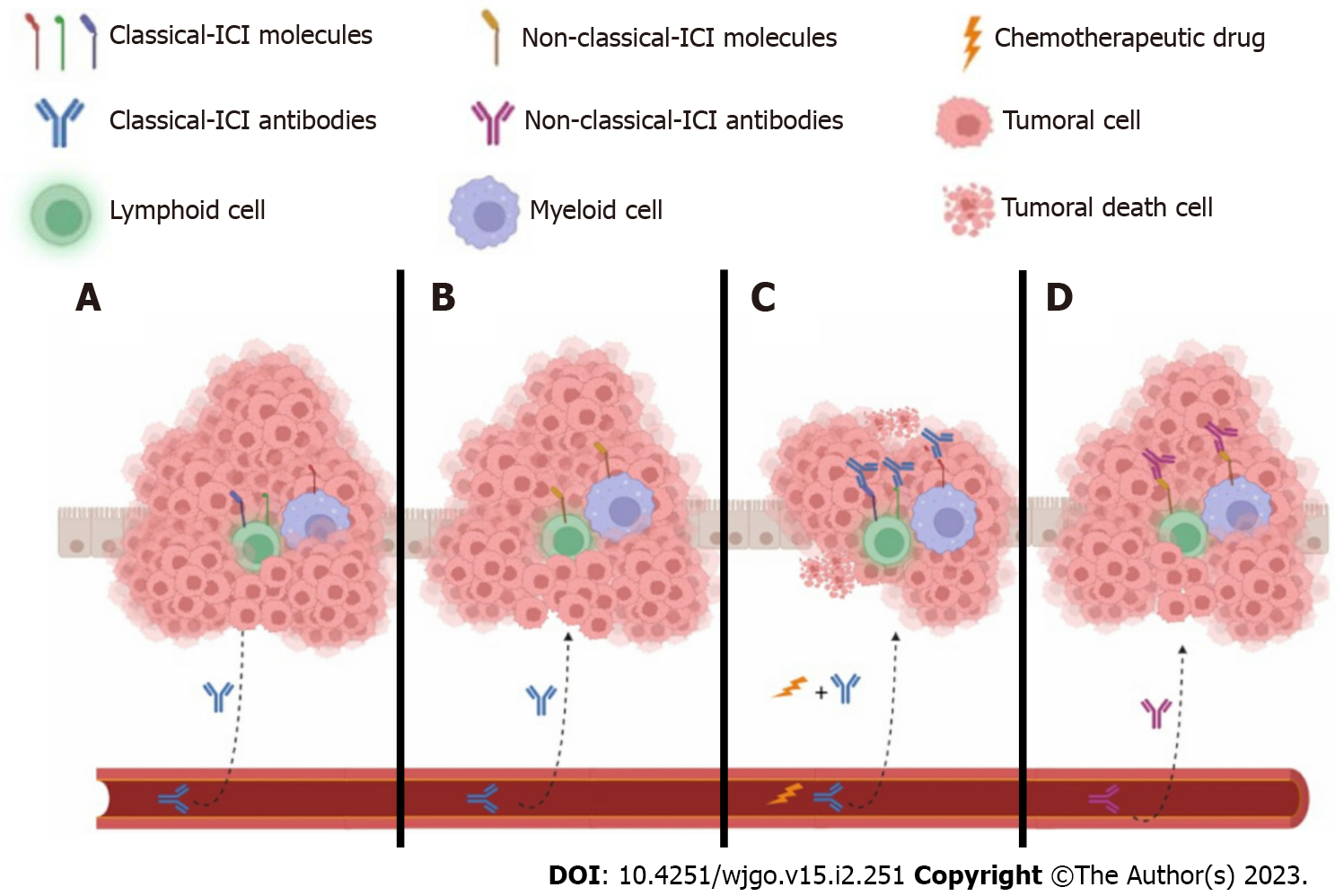Copyright
©The Author(s) 2023.
World J Gastrointest Oncol. Feb 15, 2023; 15(2): 251-267
Published online Feb 15, 2023. doi: 10.4251/wjgo.v15.i2.251
Published online Feb 15, 2023. doi: 10.4251/wjgo.v15.i2.251
Figure 3 The tumor microenvironment favors or does not allow the access of both classical and nonclassical immune checkpoint inhibitors to their targets in immune cells.
A: The classical immune checkpoint inhibitor (ICI) antibody cannot access its target because immune cells are surrounded by tumor cells, although immune cells may express classical ICIs; B: On the other hand, classical ICIs probably have access to immune cells but may not express the targeting molecules; C: Chemotherapy can induce the death of tumoral cells, favoring the formation of neoantigens that may reactivate immune cells. Additional classical ICI antibodies target individual molecules such as cytotoxic T-lymphocyte-associated protein 4, programmed cell death 1, and programmed cell death ligand 1; D: Finally, immune cells expressing nonclassical ICIs could have effector profiles such as helper T type 1 cells, cytotoxic T cells, M1, or N1 when nonclassical antibodies target them. Additionally, tumor epithelial cells may likely express both classical and nonclassical ICIs. ICI: Immune checkpoint inhibitor.
- Citation: Olguin JE, Mendoza-Rodriguez MG, Sanchez-Barrera CA, Terrazas LI. Is the combination of immunotherapy with conventional chemotherapy the key to increase the efficacy of colorectal cancer treatment? World J Gastrointest Oncol 2023; 15(2): 251-267
- URL: https://www.wjgnet.com/1948-5204/full/v15/i2/251.htm
- DOI: https://dx.doi.org/10.4251/wjgo.v15.i2.251









